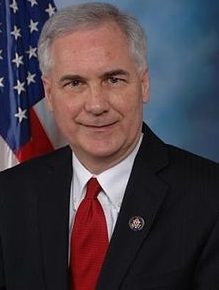
As a congressman, Rep. Tom McClintock, R-Calif., is accustomed to brevity in speech. But when it comes to reforming the modern filibuster, he has a lot to say.
McClintock said the Senate needs to amend the way it takes up and debates legislation when he spoke at Hillsdale College’s Allan P. Kirby Center for Constitutional Studies and Citizenship in Washington, D.C. on Wednesday.
“Deliberation is not an end in itself, it’s a means to an end,” he said. “That end is wise and enlightened legislation with the consent of the people. I believe the Senate is becoming dysfunctional in this respect.”
Unlike the House of Representatives — of which McClintock is a part — the Senate is permitted unlimited debate on the bills that arrive on its floor. This notion derives from the belief expressed in the Federalist Papers that the Senate should be allowed to look at a particular bill or issue from every different angle so that it can better ensure the good of the nation.
According to the Senate website, senators historically have used unlimited debate to kill bills by delivering filibusters — long speeches and debates by the minority designed to wear down the will of the majority. But following a filibuster against the Treaty of Versailles in 1919, the Senate adopted of cloture, the ability to kill discussion of a bill with a two thirds majority vote. Filibustering remained an effective way to block legislation, but it since it required the strenuous effort of standing and speaking on the Senate floor — the longest filibuster speech was 24 hours and 18 minutes — it was rarely used.
Filibustering became much more common in the 1970s, when the Senate introduced the two-track filibuster, which allows the Senate to bypass discussion on any bill that has even been threatened with a filibuster.
McClintock said the introduction of the two-track filibuster has corroded the Senate’s ability to deliberate as was intended in the Constitution.
“Actual speech is no longer required to block a vote because now, the mere threat of a filibuster is sufficient enough to kill a bill in the Senate,” he said. “Ironically, a fixture designed to protect debate has mutated into one that very effectively prevents debate.”
According to McClintock, most traditional filibusters are just publicity stunts now — he cited the example of senator Ted Cruz, R-Texas, whose 2013 filibuster included reading Dr. Seuss’ children’s book “Green Eggs and Ham” to his daughters from the Senate floor.
McClintock said especially in the Obama administration, the Senate has become trapped in gridlock where it cannot debate coherently about anything more than mundane matters. In addition, McClintock said the comments of senator Chuck Schumer, D-N.Y., on how his minority would block President-elect Trump’s Supreme Court nominees are a direct result of how the modern filibuster allows the Senate to lay aside bills and refuse to legislate.
“The vows of recent members of the Senate are as disturbing as they are credible,” McClintock said. “They’re credible because the modern Senate filibuster has become a powerful tool for a political minority to block any meaningful legislation from being enacted or even considered.”
McClintock said the Senate’s weakness has weakened the House of Representatives’ ability to legislate and has given the executive office inordinate lawmaking power.
“It is not the role of the executive to make laws and for the legislative branch to approve or veto them,” he said. “The legislative should make the laws and the executive should approve or veto them.”
To reform the Senate, McClintock proposed the end of the two-track filibuster and that all debate surrounding a bill be relevant to the bill. He also said he believes the senate should be allowed to filibuster or invoke cloture before a bill has even been discussed.
“Great debates should be had about debating great matters, but not great debates about whether to have great debates,” he said.
McClintock also said he would like to see motions to proceed with bills when they become undebatable and that senators be limited to two speeches with a two-hour time limit on any given issue.
Speakers like McClintock often come to the Kirby Center and speak to students and interested members of the public on their areas of expertise.
Junior Morgan Brownfield, a politics major participating in Hillsdale’s Washington Intern Program said McClintock gave her a new perspective on the federal government.
“It’s interesting when you study years of political theory and then see how that informs the debates that arise from its day-to-day operation,” she said.

